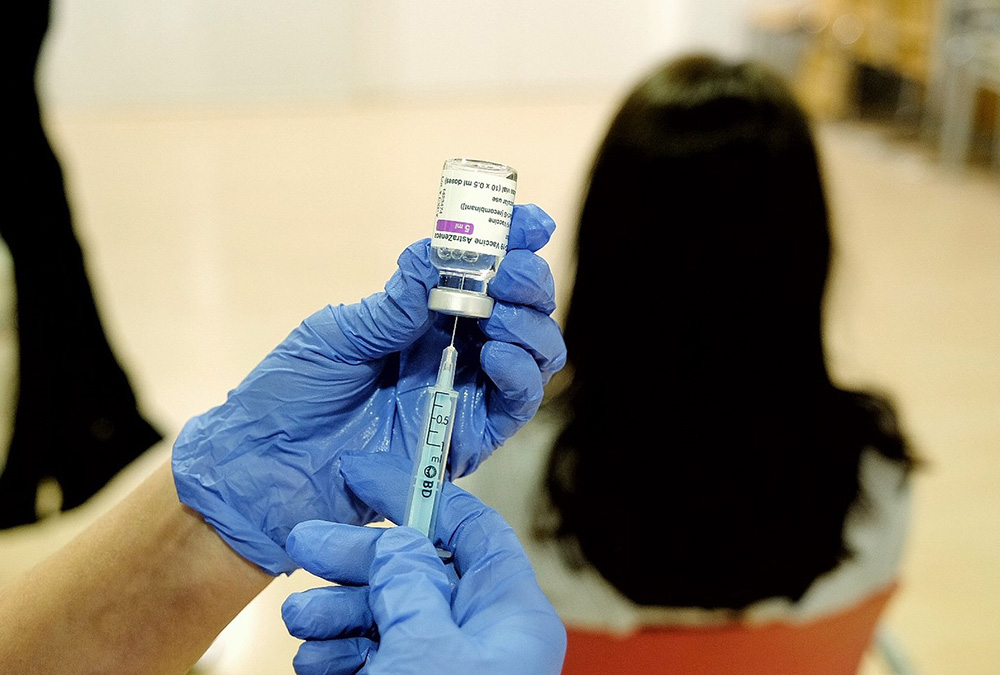Fifteen months ago, no one even knew the SARS-CoV-2 virus existed, let alone that it was about to infect scores of millions of people. Since then it’s been studied with rare intensity, and we’ve learned enough to produce an array of vaccines against it in a very brief time.
Now we’re fretting about the safety of some of those vaccines and the possibility that the AstraZeneca vaccine, in particular, may cause very rare cases of blood clots. Health Canada says it’s safe, but scare stories about such side effects tend to discourage vaccine acceptance. That hesitancy gives the virus and all its variants more chance to spread and infect more of us.
Now a Brazilian research team has learned something else about COVID-19, the disease the virus causes: it’s the first “viral thrombotic fever.” That is, one of its most dangerous symptoms is its ability to create blood clots. If they’re right, we may have a whole new way to fight the disease. And it should put in perspective overblown fears of the AstraZeneca vaccine.
On April 14, the team published its report in Memórias do Instituto Oswaldo Cruz, a journal of Brazil’s top medical institute (usually known as Fiocruz).
“The name COVID-19 tells us very little about the true meaning of the disease,” they argued. “Our proposal is more comprehensive; it intends to frame COVID-19 in more clinical terminology, making an analogy to Viral Hemorrhagic Fever. Thus, we found irrefutable evidence in the current literature that COVID-19 is the first viral disease that can be branded as a Viral Thrombotic Fever.”
From hemorrhagic to thrombotic
Many viral diseases like Ebola, Marburg, and dengue are “hemorrhagic” — many of those infected suffer bleeding from the eyes, nose and other parts of the body. The bleeding isn’t usually fatal, but it’s a sign of the damage the virus is doing to the victim’s circulatory system.
But with COVID-19, the damage done to the system results in blood clots: “COVID-19 infections promote remarkable interactions among the endothelium, coagulation and immune response, building up a background capable of promoting a ‘thrombotic storm,’ much more than a ‘cytokine storm,’” the researchers write. A cytokine storm is the immune system’s over-reaction to infection, and it can be as damaging as the infection itself. A thrombotic storm would generate clots, triggered by a viral protein called Mpro. When a virus-infected cell dies and releases hordes of new viruses, Mpro is released also.
Clotting was recognized as a problem very early in the pandemic: Last April, the Washington Post published a report on patients in their 30s and 40s, some with very mild symptoms, who were being crippled by a kind of stroke usually seen in very old people. Clots were also turning up in patients’ lungs, causing pulmonary embolisms, and in their hearts — causing heart attacks.
Mpro, the Brazilians say, can damage the endothelium, the lining of blood vessels. That could make it easier for viruses to reach the nervous system and brain, causing neurological damage: loss of the sense of smell, epilepsy, and perhaps some of the symptoms of long COVID that persist well after recovery.
Not all COVID-19 cases suffer from clots, but the Brazilians cite findings that 16 per cent of cases in intensive care had problems from excessive formation of blood clots; a French survey found over 40 per cent. It’s also possible that much of the excess mortality seen around the world is due to undiagnosed strokes.
Misplaced vaccine anxieties
The Fiocruz report concludes by saying, “It is important to say that our purpose in this opinion was to describe possible phenomenological mechanisms that can help in understanding the reasons why thrombotic phenomena are such a central hallmark of COVID-19. It was not our intention to generate or recommend therapeutic actions.” But their findings, if confirmed, certainly point the way to potential therapies that would minimize clotting — anything from aspirin to all-new attacks on Mpro and other clotting factors.
The Brazilian report gives us a new perspective on COVID-19 as a viral thrombotic fever. Their findings also make our anxieties about AstraZeneca look misplaced. Not only are the odds of a vaccine-induced clot about one in 250,000, but clots caused by COVID-19 itself are up to 100 times more likely.
Vaccine hesitancy, then only worsens the odds against us. As Damon Runyon once observed, “The race is not always to the swift, nor the battle to the strong, but that’s the way to bet.” ![]()
Read more: Coronavirus
















Tyee Commenting Guidelines
Comments that violate guidelines risk being deleted, and violations may result in a temporary or permanent user ban. Maintain the spirit of good conversation to stay in the discussion.
*Please note The Tyee is not a forum for spreading misinformation about COVID-19, denying its existence or minimizing its risk to public health.
Do:
Do not: